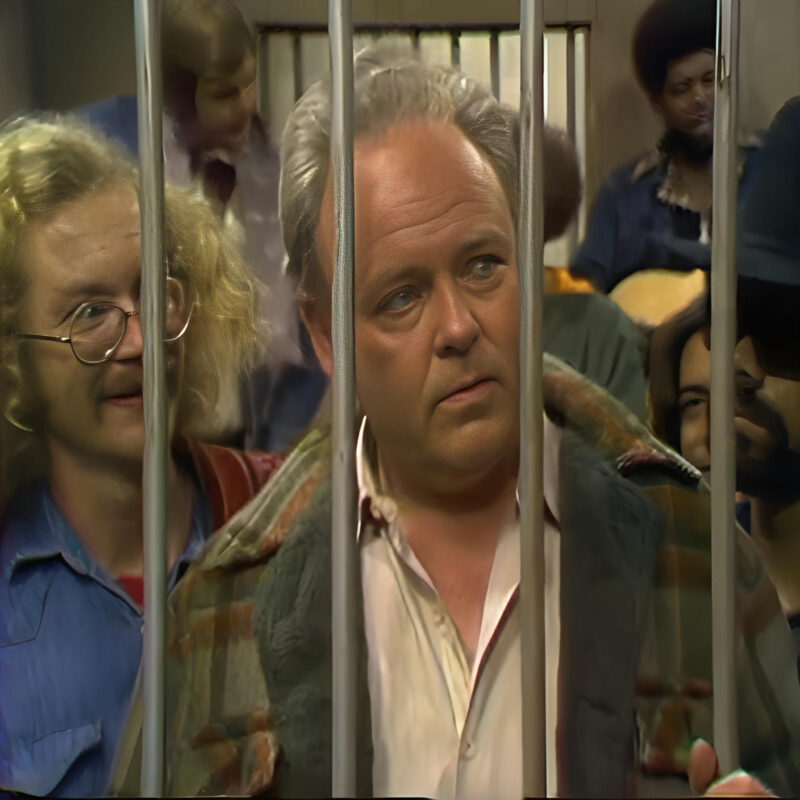
In 1978, CBS made a questionable decision by inviting Carroll O’Connor, the iconic star of “All in the Family,” to dine with some of the most prominent TV critics at the Gingerman restaurant. What followed was a night that became infamous in TV history, especially for those who witnessed O’Connor’s fiery confrontation.
O’Connor’s tirade against one critic was so intense that it made headlines in the Tampa Bay Times. He openly declared his disdain for critics, labeling them as “jerks” and stating, “I think too many of you don’t know what you are doing.” This outburst was shocking, particularly given “All in the Family’s” critical acclaim and widespread popularity.
The tension that night wasn’t spontaneous. Earlier in the evening, O’Connor was questioned about his previous comments on a talk show where he had derided critics as “hacks and semi-literates.” Instead of de-escalating, O’Connor doubled down on his remarks.
“I think you all have been in a position where you all have said something out of pure emotion that is not all true. There are semi-literates. A lot of them copy what other people write and add a little twist of their own so that it appears the local boy has the inside track,” O’Connor explained. He went on to criticize newspaper managing editors for hiring what he considered inferior writers for television critiques.
Despite the criticism any actor might face, O’Connor’s situation was unique. “All in the Family” was one of those rare shows that resonated deeply with both the general public and critics. However, this wasn’t always the case. Initially, the show received mixed reviews but gained critical favor as it became a hit with viewers.
“The criticism bothers me. I care about it, and most of the actors I know care. You people reach a pretty large audience and there is no way to get back at you. The critic always has the last word,” O’Connor admitted.
While critics may indeed have the last word, Carroll O’Connor ultimately had the last laugh. Writers who once criticized “All in the Family” are no longer in positions to voice such opinions. Meanwhile, O’Connor’s portrayal of Archie Bunker continues to captivate audiences through perpetual reruns, cementing his legacy in television history.
The dinner that was meant to foster goodwill instead highlighted the tension between O’Connor and the critical community, a tension that remained until his passing in 2001. Yet, through it all, O’Connor’s impact and the enduring success of “All in the Family” proved that his work could transcend criticism and leave an indelible mark on television.
